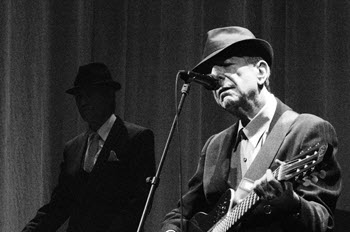
OFFICIAL DEFINITION
The processes of communicating information to increase understanding of risk and to modify behaviour leading to widespread risk reduction.
RAZER DEFINITION
There’s a time and a very good place for awareness raising activities, say smack-dab in the middle of bushfire season or before mass death by pandemic flu. If misapplied or applied so often that an audience can no longer distinguish real risk from mere inconvenience, the techniques of awareness raising may find no time or place to change any behaviour at all.
“Awareness is a glass ceiling and no substitute for action and investment,” said the scholar and mental health activist Professor Patrick McGorry back in 2016. In several of his public presentations, the highly regarded shrink has intimated that passion without action is inaction. We can “lift the stigma” through “raising awareness” of poor mental health in Beyondblue style, or we can face the truth that depressive illness needs public approval like it needs a night at home alone with the songs of Leonard Cohen.

WHY IT MATTERS
Psychologists are no more affordable when Mrs Kafoops of Birchgrove comes to understand your pain. Brutal behaviour is not changed by the telly saying it’s wrong — in fact, it may be increased. When we come, as we generally have, to believe that “starting the conversation” is the beginning of the end to every kind of ill, we cannot be rescued from the risk of our mass delusion. Not even by an awareness campaign.
So many have come to accept that raising awareness is an end in itself. Even if no one in government believes that the practice does a damn thing, they’re sure prepared to pay the private and “community” sectors a load of dosh to do it. Whether an agent is cynical, sincere or a little of both in the use of a thing whose effectiveness is, at best, unfalsifiable, it has become a mandatory technique, a professional specialty and a very cheap means to convince a good many that Something is Being Done.
WHO CARES?
Many NGOs — and the states and firms that fund them — care, even if unconsciously, to continue conversation started by the awareness raising lark. It’s a low-cost, no-risk approach to the management of risk. In very few cases of awareness days, campaigns, UN years or ribbons can the return on investment be measured.
What has been observed by a bloke like McGorry and measured by research is the harm that the process can cause. Awareness raising can create more than the obfuscating sense that our betters are busy reforming an under-funded, over-extended network of mental health providers. It can elevate the very risk it claims to diminish.
The month that is swathed in pink has been found to dissuade women from seeking breast cancer checks. The awareness campaign that seeks to reduce gender-based violence can license such behaviour to the point that it increases. A colossal campaign to end obesity such as Michelle Obama’s “Let’s Move!” can produce fat kids and research shmesearch, really. Try telling me or my mum that more than a glass of bubbles is binge drinking or an act of self-harm and we’ll pop another cork.
RELEVANT FACTS
- The United Nations has given the year 2022 to the awareness of artisanal fisheries.
- The Wikipedia entry on awareness raising couldn’t be more wrong.
- The view that “respect” for women will reduce the risk of women being beaten has no basis in research or logic.
- Peter Hall observed the government “policy paradigm” to be highly resistant to evidence of ineffectiveness. This explains, in part, state fondness for awareness raising.
- Helen Razer has observed that private organisations, particularly those commissioned to create all this state-funded awareness malarkey, are highly resistant to everything but profit.
THE LAST WORD
“A little learning,” wrote Alexander Pope, “is a dang’rous thing”. This is similar to the elitist criticism a reporter lady finds daily in her inbox, and so can largely get knotted. But it is quite true that there can be unintended consequences of limited knowledge. And limited knowledge — or, in the case of Michelle Obama’s campaign, which overlooked the role that high-calorie foods play in obesity, flawed knowledge — is what awareness raising largely provides.
As described by Burch and Gordon in the 1970s, Dunning and Kruger in 1999, Nassim Taleb in 2007, Daniel Kahneman in 2011, and others, those with limited knowledge on a subject have a funny way of being both the worst people to decide what course of action should be undertaken and are the most confident in their prescriptions.
We’re all remedial experts now in this age of easy hacks and not only are we certain that #MeToo has, somehow, solved the problem of workplace harassment without producing the passage of one industrial law, but we just know that awareness raising is effective.
Awareness raising has effectively convinced the general population of the West that the Something that Needs to Be Done about, say, our rapid descent into poverty or our rapid ascent into a global warming inferno will be done when we “start the conversation”.
FURTHER READING
Christiano, A & Neimand, A (2017). Stop Raising Awareness Already. Stanford Social Innovation Review, Spring, https://ssir.org/articles/entry/stop_raising_awareness_already
Beck, J (2015). What Good is “Raising Awareness”? The Atlantic, 21 April, https://www.theatlantic.com/health/archive/2015/04/what-good-is-raising-awareness/391002/
Manchester University (2014). Celebrity Promotion of Charities “is largely ineffective” says Research.” ScienceDaily, 8 August, www.sciencedaily.com/releases/2014/08/140808110840.htm
Sanchez, C & Dunning, D (2018). Overconfidence Among Beginners: Is a Little Learning a Dangerous Thing? Journal of Personality and Social Psychology, 114(1), 10–28.
Downs, A (1972). Up and Down with Ecology—The “Issue-Attention Cycle”. Public Interest, 28, 38–50.








Another great article, Helen, and on a subject that has long irritated me.
My main problem with ‘awareness raising’ is that it utterly obscures the true intent, hence how the intention was ever validated in the first place, and thus how worthy (or not) the underlying enterprise is.
Among ventures called ‘awareness raising’ I have seen:
* Calls to well-conceived and carefully-targeted action;
* Demands for policy investigations into root causes and possible remedies;
* Genuine attempts to educate, inform and improve choices;
* Flagrant indoctrination into ideas that may or may not even be legitimate;
* Largely symbolic slacktivism; and
* Naked commercial self-promotion.
‘Awareness raising’ is clearly a communications buzzword: though it didn’t begin as a product of social media, it’s surely now dominated by the McLuhanesque payoff of attention for attention’s sake.
But any sensible evaluation of a social promotion has to reflect the timeliness, relevance and legitimacy of its underlying intent — and thus it can’t simply be measured in terms of hits or dollars raised.
Well put!
Awareness raising you do when you couldn’t be bothered doing anything useful.
Education is for monkeys, so debased it has become.
A natural outgrowth of Virago/SpareRib 60s consciousness raising which ran aground on the fact that people prefer comfy delusion.
No. This is suggested in the Wikipedia article, but there is no evidence that class or political consciousness (borrowed from Engels and Lukacs) informs awareness raising I could find.
Spare Rib was a materially focused mag. Loads of stuff in its Tory heyday about the assault on services, particularly to women. Virago mostly published fiction. The feminist consciousness raising groups of the 1960s and 1970s had an explicit project, explained in the “personal is political” 1968 essay by Carol Hanisch. Not at all like the #MeToo stuff of the present.
I understand your understanding. It is easy to understand 1980s feminism as culturally focused. Some of it was, of course. But Spare Rib is not a good example. Try Ms. Magazine, perhaps.
The class or political consciousness raising of the Left and descendants was seen as an essential first step to activism. Awareness raising is seen as an end in itself.
Again, I understand the comparison but there is such an industry around “awareness raising” and this began with, in my investigations, the competitive tender process started by neoliberal pioneer, M Thatcher.
A few leftists talking to each other about how their real lives bore out evidence of theory in groups or basically photocopied zines like Spare Rib? Not so powerful, I suggest.
It’s an interesting topic and a huge industry for so-called NGOs that make all their money from guaranteeing “awareness raising” to the state in vague reports that escape accountability for their (relatively) low procurement cost.
Perhaps you are not entirely correct.
Hundreds of “Toyah” Crime Stopper bumper stickers have been printed and appear on cars across North Queensland, following her brutal murder. However, it’s sad to say that they have the same collective impact as “thoughts and prayers.”
I like this article. I remember when i was a teenager back in the 70s there was an awareness raising ad in buses that said “Girls can do anything.” This did not turn out to be so. And in the 80’s there were ads raising awareness about domestic violence with a picture of a bruised woman captioned “you don’t have to put up with it.” This also turned out not to be so. And nowadays there are those mental health awareness raising ads in public toilets…. that make you feel anxious just reading them but when i last checked actual mental health care services were very thin on the ground.